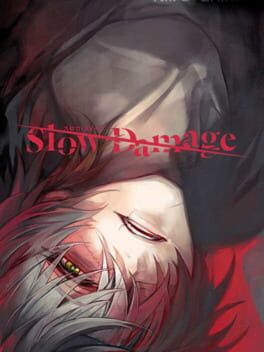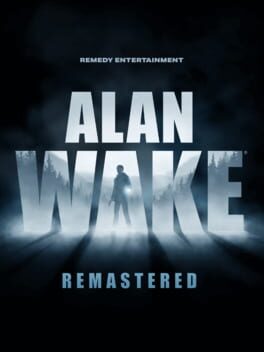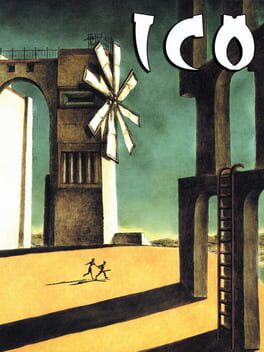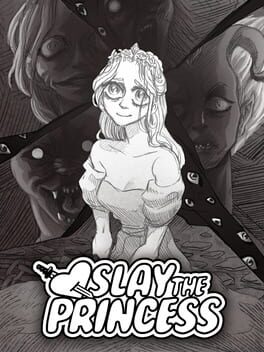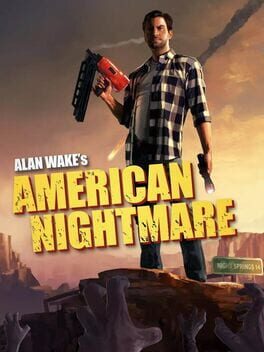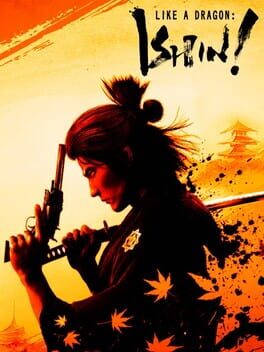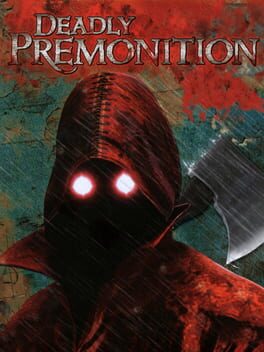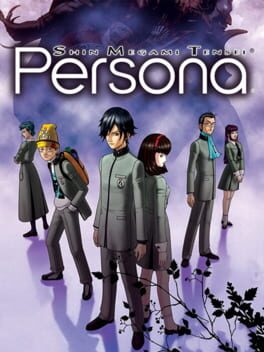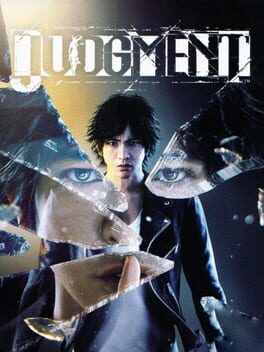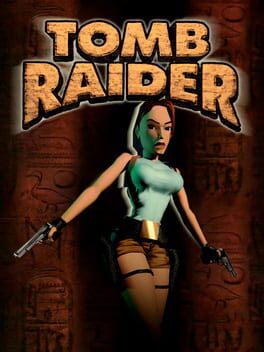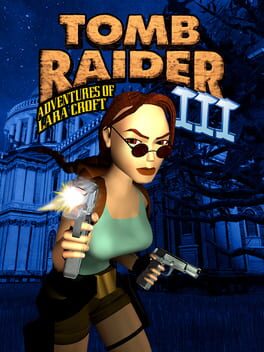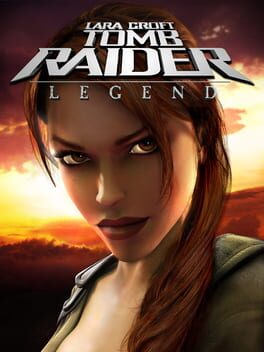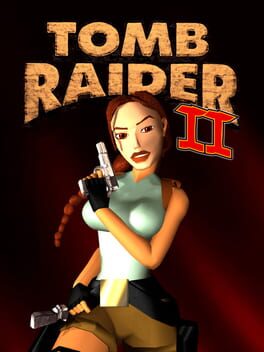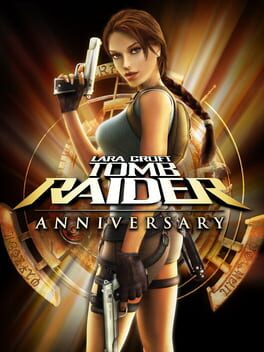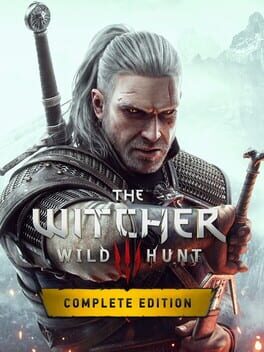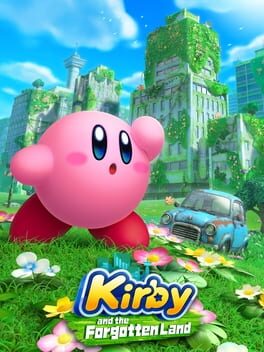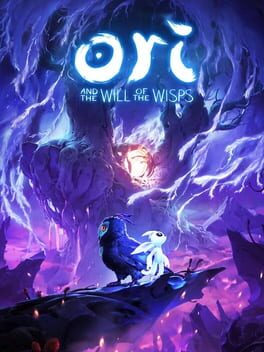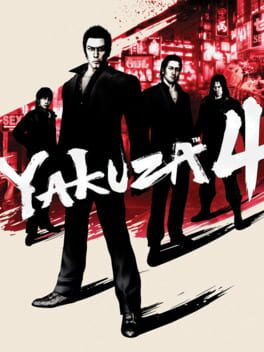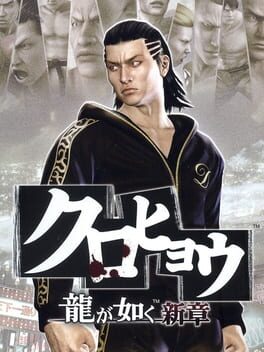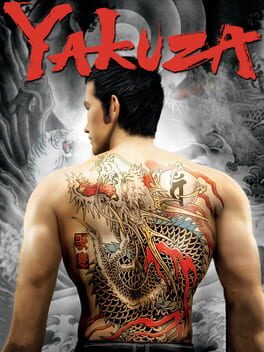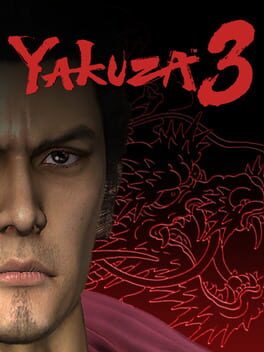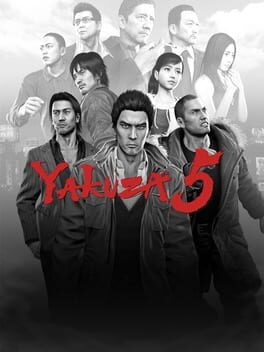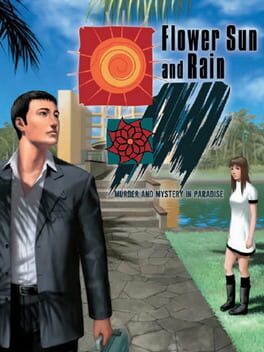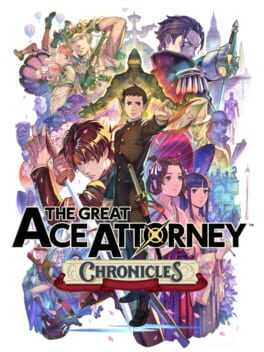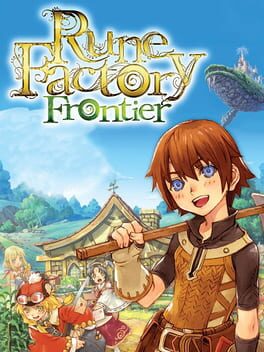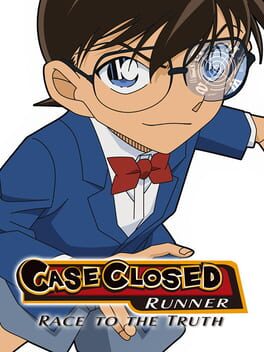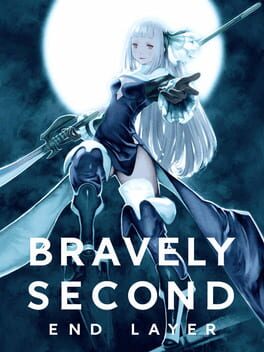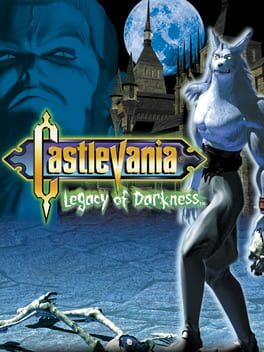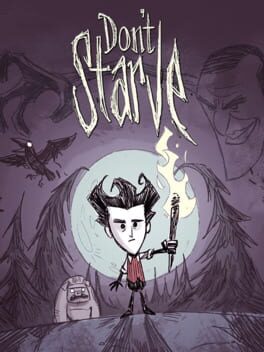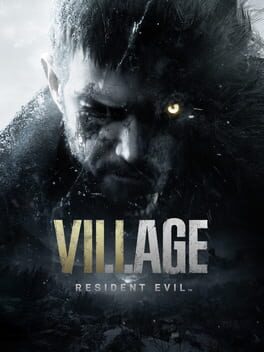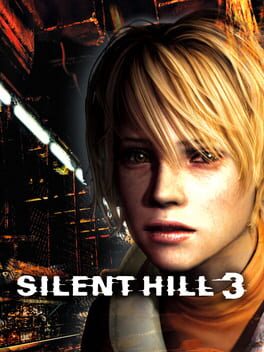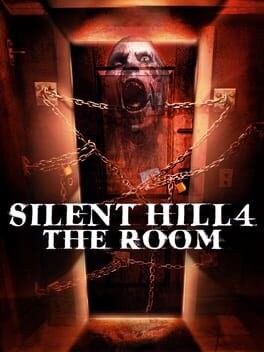decayofangel
198 reviews liked by decayofangel
Slow Damage
2021
Slow Damage highlights how much Fuchii Kabura has grown as a writer since the first visual novel she wrote a scenario for, Togainu no Chi. It’s a fantastic game about memory, trauma, the parts of ourselves we try to hide, and, well, scars, both physical and emotional. Towa is an enthralling protagonist, easily the most interesting one a N+C game has given us. A sadistic and calculating painter who longs to capture his subjects' most disturbing thoughts is certainly something new compared to other N+C protagonists, who are typically either upbeat or demure. On top of this, Slow Damage feels like it pays homage to its predecessors in many ways, the most literal being that songs from the prior games’ soundtracks play at certain points so annoying people like me can say “hey, that’s from Lamento”. However, Slow Damage also borrows aesthetics from the other games– Togainu no Chi’s sadistic streak, Lamento’s lengthy and in-depth routes that gave a profound understanding of each character, sweet pool’s transgressive beauty, DRAMAtical Murder’s lively and colorful yet dystopian city– and combines them to make one hell of a BL game.
It’s interesting, because obviously Nitro+Chiral is known for its high-concept games, and while Slow Damage does have a unique setting, it feels far less mysterious than previous entries. Not in a bad way at all, just a more realistic approach. For example, while the ever-cryptic narrative of sweet pool can easily be interpreted as an abstract portrayal of gay coming-of-age in a conservative environment full of repression, Slow Damage just straight-up shows the effects of homophobia and rejection on one character. Sweet pool is definitely the most avant-garde of Kabura’s works, so this may not be the best example, but I feel like basically every prior game used some sort of fantastical or allegorical tactics to convey the backstories of the boys… this one really doesn’t. This is a shift for sure, but Kabura handles it with a lot of elegance.
There are four routes in the game, and I think each of them are well-written in their own ways. The first two are Rei and Taku, then there’s a third route that unlocks after Taku’s, Madarame’s, and finally there is the true route, Fujieda. If I had to rank them, I would probably say Fujieda>>> Rei > Madarame >> Taku. I don’t think it’s a spoiler to say that Madarame and Fujieda are route options despite the fact that they unlock later because they’re in the opening and also… If you’re playing a game with romantic routes, you’ve probably already looked up who all the candidates are. Lol.
Rei’s route is such a powerful character study of him, his identity as a gay man, and his upbringing and past traumas. As a gay guy who always stuck out in school, was noticeably feminine, and experienced some hard to cope with rejection and homophobia when I came out to my family, I really felt for him. Out of all of Kabura’s characters from any of her games, Rei feels the most real to me. I love him. Honestly, it feels like I know him and his friends. Kabura handles his route with such a degree of care and nuance it’s honestly impressive. And to keep spoilers minimal, she picks a hard fucking set of topics to talk about with him. Like, some very tricky to discuss but honestly pretty real things I think a lot of queer men struggle with. I never expected anything like it in a BL game. Despite a… interesting new look in his final scenes (I DID do a double take), I love Rei’s route. It’s very touching. It’s also just refreshing to see both him and Towa just… be openly gay. For much of this game, it strays from the common BL trope of “if it’s you, it’s fine”, that I’ve gotten used to, but still find exhausting at times. Just a nice thing to note.
Taku’s route is probably the weakest for me. I still think it’s good, ultimately, but I think it falls into the common VN-with-multiple-routes problem of “it just feels abrupt, it obviously isn’t the true end”. On top of this, he’s sort of in this weird situation where I feel like I understand him more after completing the later routes than I do in his own route. However, his route still offers an interesting look into the motivations and hidden complexities of the seemingly moral doctor. It just feels somewhat rushed compared to the other routes.
It’s a bit harder to talk about Madarame and Fujieda’s routes without getting into spoilers, but Fujieda’s in particular is extremely poignant, and is, to me, probably the best thing Kabura has written thus far. In it, she creates a miasma of fear, sorrow, and pain so powerful that it can be overwhelming. Not wanting to remember, because ripping off the metaphorical bandaid and confronting the past can often be the hardest thing you can do. What results is an ultimately very kind and tender finale that is kind of… peak boys’ love, really. On the other hand, Madarame’s route explores the darkest impulses of Towa, and in many ways, Madarame is the best partner for the person Towa is– they both cater towards each others’ depraved needs perfectly. This is another thing I enjoy about Slow Damage–all of the routes feel so wholly different. The two initial routes involve Towa staying relatively stagnant, albeit opening up to his partner near the end. The third route has Towa embracing parts of his past, but not truly digging deep, and embracing the most sinister parts of himself. Finally, the true route has Towa accept every part of himself.
In conclusion, I laughed, I cried, I watched hot anime boys cut each other up in a pseudosexual trance state, and I’d do it all again. I really hope that this game gets a fandisc similar to DMMD, because I’m desperate to see more of these characters. I loved them all. I do also hope that the side game, Clean Dishes, gets some form of localization or translation, though I’m unsure how likely that is in the near future since Lamento and DMMD reconnect have yet to be localized. But yeah it’s uh… a good visual novel! If you love seeing guys fuck well this is for you!
It’s interesting, because obviously Nitro+Chiral is known for its high-concept games, and while Slow Damage does have a unique setting, it feels far less mysterious than previous entries. Not in a bad way at all, just a more realistic approach. For example, while the ever-cryptic narrative of sweet pool can easily be interpreted as an abstract portrayal of gay coming-of-age in a conservative environment full of repression, Slow Damage just straight-up shows the effects of homophobia and rejection on one character. Sweet pool is definitely the most avant-garde of Kabura’s works, so this may not be the best example, but I feel like basically every prior game used some sort of fantastical or allegorical tactics to convey the backstories of the boys… this one really doesn’t. This is a shift for sure, but Kabura handles it with a lot of elegance.
There are four routes in the game, and I think each of them are well-written in their own ways. The first two are Rei and Taku, then there’s a third route that unlocks after Taku’s, Madarame’s, and finally there is the true route, Fujieda. If I had to rank them, I would probably say Fujieda>>> Rei > Madarame >> Taku. I don’t think it’s a spoiler to say that Madarame and Fujieda are route options despite the fact that they unlock later because they’re in the opening and also… If you’re playing a game with romantic routes, you’ve probably already looked up who all the candidates are. Lol.
Rei’s route is such a powerful character study of him, his identity as a gay man, and his upbringing and past traumas. As a gay guy who always stuck out in school, was noticeably feminine, and experienced some hard to cope with rejection and homophobia when I came out to my family, I really felt for him. Out of all of Kabura’s characters from any of her games, Rei feels the most real to me. I love him. Honestly, it feels like I know him and his friends. Kabura handles his route with such a degree of care and nuance it’s honestly impressive. And to keep spoilers minimal, she picks a hard fucking set of topics to talk about with him. Like, some very tricky to discuss but honestly pretty real things I think a lot of queer men struggle with. I never expected anything like it in a BL game. Despite a… interesting new look in his final scenes (I DID do a double take), I love Rei’s route. It’s very touching. It’s also just refreshing to see both him and Towa just… be openly gay. For much of this game, it strays from the common BL trope of “if it’s you, it’s fine”, that I’ve gotten used to, but still find exhausting at times. Just a nice thing to note.
Taku’s route is probably the weakest for me. I still think it’s good, ultimately, but I think it falls into the common VN-with-multiple-routes problem of “it just feels abrupt, it obviously isn’t the true end”. On top of this, he’s sort of in this weird situation where I feel like I understand him more after completing the later routes than I do in his own route. However, his route still offers an interesting look into the motivations and hidden complexities of the seemingly moral doctor. It just feels somewhat rushed compared to the other routes.
It’s a bit harder to talk about Madarame and Fujieda’s routes without getting into spoilers, but Fujieda’s in particular is extremely poignant, and is, to me, probably the best thing Kabura has written thus far. In it, she creates a miasma of fear, sorrow, and pain so powerful that it can be overwhelming. Not wanting to remember, because ripping off the metaphorical bandaid and confronting the past can often be the hardest thing you can do. What results is an ultimately very kind and tender finale that is kind of… peak boys’ love, really. On the other hand, Madarame’s route explores the darkest impulses of Towa, and in many ways, Madarame is the best partner for the person Towa is– they both cater towards each others’ depraved needs perfectly. This is another thing I enjoy about Slow Damage–all of the routes feel so wholly different. The two initial routes involve Towa staying relatively stagnant, albeit opening up to his partner near the end. The third route has Towa embracing parts of his past, but not truly digging deep, and embracing the most sinister parts of himself. Finally, the true route has Towa accept every part of himself.
In conclusion, I laughed, I cried, I watched hot anime boys cut each other up in a pseudosexual trance state, and I’d do it all again. I really hope that this game gets a fandisc similar to DMMD, because I’m desperate to see more of these characters. I loved them all. I do also hope that the side game, Clean Dishes, gets some form of localization or translation, though I’m unsure how likely that is in the near future since Lamento and DMMD reconnect have yet to be localized. But yeah it’s uh… a good visual novel! If you love seeing guys fuck well this is for you!
Alan Wake Remastered
2021
Alan Wake is one of those games where you see a lot of people call it good, go "oh well people say that's good, I'll get around to it eventually I guess" and then when you finally sit down and play it you realize that it was in fact an amazing game and you should have played it sooner. Alan Wake is a transcendent experience, if you have not played this game, play it. Gameplay is honestly kind of repetitive at times so there is no issue with just playing easy mode for the story.
Ico
2012
Ico is the type of game I dread to play, critically acclaimed, landmark classic of the medium, influenced various games and designers I love. I dread playing those because of a fear I have, a fear that's come true : I don't like ICO, in fact, I think I might hate ICO. And now I will have to carry that like a millstone around my neck, "that asshole who doesn't like ICO". Its not even really that external disapproval I dread, its the very reputation that causes me to second guess my own sincerely held opinions. I thought I liked minimalism in game design, and cut-scene light storytelling and relationships explored through mechanics but I guess I don't. There's some kinda dissonance, cognitive or otherwise reading reviews by friends and writers I respect and wondering if there's something wrong with me or if I didnt get it or played it wrong or any other similar foolishness that gets bandied around in Internet discussions. "I wish we could have played the same game" I think, reading my mutuals' reviews of ICO. Not in a dismissive asshole way of accusing them of having a warped perception, but moreso in frustration that I didnt have the experience that has clearly touched them and countless others.
But enough feeling sorry for myself/being insecure, what is my problem with ICO exactly? I don't really know. Genuinely. I wasnt even planning on writing a review originally because all it would come down to as my original unfiltered reaction would be "Playing it made me miserable". Thankfully the upside of minimalism in game design is that its easier to identify which elements didnt work for me because there are few in the game. I think the people who got the most out of ICO developed some kind of emotional connection to Yorda, and thats one aspect which absolutely didn't work for me. As nakedly "gamey" and transparently artificial as Fallout New Vegas' NPCs (and Skyrim and F3 etc) locking the camera to have a dialogue tree, they read to me as infinitely more human than the more realistic Yorda; for a few reasons. Chief among them is that despite some hiccups and bugs the game is known for, you are not asked to manage them as a gameplay mechanic beyond your companions and well, my main interaction with Yorda was holding down R1 to repeatedly yell "ONG VA!" so she'd climb down the fucking ladder. She'd climb down, get halfway through and then decide this was a bad idea and ascend again.
ICO has been to me a game of all these little frustrations piling up. Due to the nature of the puzzles and platforming, failing them was aggravating and solving them first try was merely unremarkable. It makes me question again, what is the value of minimalism genuinely? There was a point at which I had to use a chain to jump across a gap and I couldnt quite make it, I thought "well, maybe theres a way to jump farther" and started pressing buttons randomly until the circle button achieved the result of letting me use momentum to swing accross. Now, if instead a non-diegetic diagram of the face buttons had shown up on the HUD instead what would have been lost? To me, very little. Sure, excessive direction can be annoying and take me out of the game, but pressing buttons randomly did the same, personally. Nor did "figuring it out for myself" feel particularly fulfilling. Thats again what I meant, victories are unremarkable and failures are frustrating. The same can be said for the combat which, honestly I liked at first. I liked how clumsy and childish the stick flailing fighting style was, but ultimately it involved hitting the enemies over and over and over and over again until they stopped spawning. Thankfully you can run away at times and rush to the exit to make the enemies blow up but the game's habit of spawning them when you're far from Yorda or maybe when she's on a different platform meant that I had to rely on her stupid pathfinding to quickly respond (which is just not going to happen, she needs like 3 business days to execute the same thing we've done 5k times already, I guess the language barrier applies to pattern recognition as well somehow) and when it inevitably failed I would have to jump down and mash square until they fucked off.
I can see the argument that this is meant to be disempowering somehow but I don't really buy it. Your strikes knock these fuckers down well enough, they just keep getting back up. Ico isnt strong, he shouldnt be able to smite these wizard of oz monkeys with a single swing, but then why can they do no damage to ICO and get knocked down flat with a couple swings? Either they are weak as hell but keep getting remotely CPRd by the antagonist or they're strong but have really poor balance. In the end, all I could really feel from ICO was being miserable. I finished the game in 5 hours but it felt twice that. All I can think of now is that Im glad its done and I can tick it off the bucket list. I am now dreading playing shadow of the colossus even harder, and I don't think I ever want to play The Last Guardian, it just looks like ICO but even more miserable. I'm sure I've outed myself as an uncultured swine who didnt get the genius of the experience and will lose all my followers but I'm too deflated to care. If there is one positive to this experience is that I kept procrastinating on finishing the game that I got back into reading. I read The Name of the Rose and Rumble Fish, pretty good reads. Im going to read Winesburg Ohio next I think.
But enough feeling sorry for myself/being insecure, what is my problem with ICO exactly? I don't really know. Genuinely. I wasnt even planning on writing a review originally because all it would come down to as my original unfiltered reaction would be "Playing it made me miserable". Thankfully the upside of minimalism in game design is that its easier to identify which elements didnt work for me because there are few in the game. I think the people who got the most out of ICO developed some kind of emotional connection to Yorda, and thats one aspect which absolutely didn't work for me. As nakedly "gamey" and transparently artificial as Fallout New Vegas' NPCs (and Skyrim and F3 etc) locking the camera to have a dialogue tree, they read to me as infinitely more human than the more realistic Yorda; for a few reasons. Chief among them is that despite some hiccups and bugs the game is known for, you are not asked to manage them as a gameplay mechanic beyond your companions and well, my main interaction with Yorda was holding down R1 to repeatedly yell "ONG VA!" so she'd climb down the fucking ladder. She'd climb down, get halfway through and then decide this was a bad idea and ascend again.
ICO has been to me a game of all these little frustrations piling up. Due to the nature of the puzzles and platforming, failing them was aggravating and solving them first try was merely unremarkable. It makes me question again, what is the value of minimalism genuinely? There was a point at which I had to use a chain to jump across a gap and I couldnt quite make it, I thought "well, maybe theres a way to jump farther" and started pressing buttons randomly until the circle button achieved the result of letting me use momentum to swing accross. Now, if instead a non-diegetic diagram of the face buttons had shown up on the HUD instead what would have been lost? To me, very little. Sure, excessive direction can be annoying and take me out of the game, but pressing buttons randomly did the same, personally. Nor did "figuring it out for myself" feel particularly fulfilling. Thats again what I meant, victories are unremarkable and failures are frustrating. The same can be said for the combat which, honestly I liked at first. I liked how clumsy and childish the stick flailing fighting style was, but ultimately it involved hitting the enemies over and over and over and over again until they stopped spawning. Thankfully you can run away at times and rush to the exit to make the enemies blow up but the game's habit of spawning them when you're far from Yorda or maybe when she's on a different platform meant that I had to rely on her stupid pathfinding to quickly respond (which is just not going to happen, she needs like 3 business days to execute the same thing we've done 5k times already, I guess the language barrier applies to pattern recognition as well somehow) and when it inevitably failed I would have to jump down and mash square until they fucked off.
I can see the argument that this is meant to be disempowering somehow but I don't really buy it. Your strikes knock these fuckers down well enough, they just keep getting back up. Ico isnt strong, he shouldnt be able to smite these wizard of oz monkeys with a single swing, but then why can they do no damage to ICO and get knocked down flat with a couple swings? Either they are weak as hell but keep getting remotely CPRd by the antagonist or they're strong but have really poor balance. In the end, all I could really feel from ICO was being miserable. I finished the game in 5 hours but it felt twice that. All I can think of now is that Im glad its done and I can tick it off the bucket list. I am now dreading playing shadow of the colossus even harder, and I don't think I ever want to play The Last Guardian, it just looks like ICO but even more miserable. I'm sure I've outed myself as an uncultured swine who didnt get the genius of the experience and will lose all my followers but I'm too deflated to care. If there is one positive to this experience is that I kept procrastinating on finishing the game that I got back into reading. I read The Name of the Rose and Rumble Fish, pretty good reads. Im going to read Winesburg Ohio next I think.
Slay the Princess
2023
Having to make my own decisions was a terrifying experience. I will never do it again. And before anyone asks, I did it, everyone! I fixed her! (I got the good ending)
It was one of the best visual novels I have ever played. Great voice acting, great story, and the voices in my head are accurate. It's impressive that they are still updating the game, and a big update that'll extend the game by 25% is on its way. It's also not a very long game; I finished it in 5 hours because I took my sweet time and wandered around.
There was a sequence where I refused to continue doing what I was told, and the game shut down after the entity told me, "I will be here when you are ready" or something. I was flabbergasted. Next time I opened the game, that same entity welcomed me, and I continued where I left off.
I just wished that the Voice of the Hero and the Narrator's voice wasn't so identical.
It is truly a unique experience and a must-play.
It was one of the best visual novels I have ever played. Great voice acting, great story, and the voices in my head are accurate. It's impressive that they are still updating the game, and a big update that'll extend the game by 25% is on its way. It's also not a very long game; I finished it in 5 hours because I took my sweet time and wandered around.
There was a sequence where I refused to continue doing what I was told, and the game shut down after the entity told me, "I will be here when you are ready" or something. I was flabbergasted. Next time I opened the game, that same entity welcomed me, and I continued where I left off.
I just wished that the Voice of the Hero and the Narrator's voice wasn't so identical.
It is truly a unique experience and a must-play.
Am I already so deeply engrossed and fascinated with the Alan Wake lore and plot to the point where I feel this game is sometimes treated a little too harshly by some people? Oh, absolutely. Despite initial expectations, I find myself wholeheartedly invested in Alan's journey and the expansive universe surrounding him. Don't get me wrong, this game isn't all that great, but there are still redeeming qualities within it.
While Alan Wake's American Nightmare offers a somewhat familiar gameplay experience, it tends to feel dull quite often. Despite some refinements, it still falls short, and despite the game's short length it tends to drag on longer than the original game did. However, what truly stands out once again is the unique plot and storytelling.
I understand not everyone might vibe with the story as much as the original, but after experiencing The Signal and The Writer, I actually really appreciate that this game delves more into the wackiness of Alan's mind and introduces us to Mr. Scratch. The dialog may venture into weird territory, but I believe this quirkiness adds to the game's undeniable charm.
While Alan Wake's American Nightmare offers a somewhat familiar gameplay experience, it tends to feel dull quite often. Despite some refinements, it still falls short, and despite the game's short length it tends to drag on longer than the original game did. However, what truly stands out once again is the unique plot and storytelling.
I understand not everyone might vibe with the story as much as the original, but after experiencing The Signal and The Writer, I actually really appreciate that this game delves more into the wackiness of Alan's mind and introduces us to Mr. Scratch. The dialog may venture into weird territory, but I believe this quirkiness adds to the game's undeniable charm.
THE YEAR OF THE DRAGON
Yeah, no, I gave my best shot, but this was just a dud for me. It could be a sign of burnout from playing through so many games in this series almost back-to-back, but I got through Yakuza 5 relatively unscathed, so I don’t think it’s quite that. Ishin was just such a bore. It’s an Unreal Engine 4 remake of a spin-off game that never got localized, and that alone should tell you this something of an acquired taste. I don’t blame people who got more enjoyment out of this than I did, there’s something here, massive flaws aside, where I can see the hype. It’s historical fan-fiction with stand-ins played by many of your favorite characters across different eras of Yakuza/Like A Dragon. It’s entertaining seeing characters brought in, many retaining their core personality, and interact in a totally different context. Some, not helped to know they were replacing old cameos from Ishin’s original PS3 release, are just questionable in how they used iconic series regulars as fan service. Like, why did they put Shibusawa and Nishiki in the game but Shibusawa is the one they decided to make Ryoma’s sword oath brother?? Despite the deliberate slow pace, tense dramatic moments, and some of the best directing RGG probably has done, I just can’t feel immersed into this concept. It wants to be a dramatic historical retelling of a famed Japanese figure, yet it wants to also be this fun dish of elseworld fan-service, and it just makes the narrative feel disconnected as hell because neither side complemented each other into something… good? A story that didn’t click with me wouldn’t be much hassle if it weren’t for how the gameplay just feels clunky to play. It’s not even ‘charming clunk’ or ‘jank’ people like to toss around a lot, but something that felt gross to move around and fight in the map. Which I didn’t like either, since I never got hooked into the historical setting and felt we just had the weakest map RGG has ever made. Having multiple fighting styles like slashing enemies, shooting enemies, bashing enemies Yakuza style, or even dual wielding a katana and gun was very fun until the content bloat kicked in with weird trooper cards, unexpectedly dull substories, and so much grinding that I had to put down the controller and close the game right in the middle of a cutscene because I knew this wasn’t getting any better from here on out. This was the only RGG game I dropped, didn’t bother to see the end, and I think I’m fine with leaving it incomplete as that. Yakuza in Unreal Engine is cursed af, I’m glad RGG is never dropping the Dragon Engine in favor of it like some bigger studios are doing recently.
Yeah, no, I gave my best shot, but this was just a dud for me. It could be a sign of burnout from playing through so many games in this series almost back-to-back, but I got through Yakuza 5 relatively unscathed, so I don’t think it’s quite that. Ishin was just such a bore. It’s an Unreal Engine 4 remake of a spin-off game that never got localized, and that alone should tell you this something of an acquired taste. I don’t blame people who got more enjoyment out of this than I did, there’s something here, massive flaws aside, where I can see the hype. It’s historical fan-fiction with stand-ins played by many of your favorite characters across different eras of Yakuza/Like A Dragon. It’s entertaining seeing characters brought in, many retaining their core personality, and interact in a totally different context. Some, not helped to know they were replacing old cameos from Ishin’s original PS3 release, are just questionable in how they used iconic series regulars as fan service. Like, why did they put Shibusawa and Nishiki in the game but Shibusawa is the one they decided to make Ryoma’s sword oath brother?? Despite the deliberate slow pace, tense dramatic moments, and some of the best directing RGG probably has done, I just can’t feel immersed into this concept. It wants to be a dramatic historical retelling of a famed Japanese figure, yet it wants to also be this fun dish of elseworld fan-service, and it just makes the narrative feel disconnected as hell because neither side complemented each other into something… good? A story that didn’t click with me wouldn’t be much hassle if it weren’t for how the gameplay just feels clunky to play. It’s not even ‘charming clunk’ or ‘jank’ people like to toss around a lot, but something that felt gross to move around and fight in the map. Which I didn’t like either, since I never got hooked into the historical setting and felt we just had the weakest map RGG has ever made. Having multiple fighting styles like slashing enemies, shooting enemies, bashing enemies Yakuza style, or even dual wielding a katana and gun was very fun until the content bloat kicked in with weird trooper cards, unexpectedly dull substories, and so much grinding that I had to put down the controller and close the game right in the middle of a cutscene because I knew this wasn’t getting any better from here on out. This was the only RGG game I dropped, didn’t bother to see the end, and I think I’m fine with leaving it incomplete as that. Yakuza in Unreal Engine is cursed af, I’m glad RGG is never dropping the Dragon Engine in favor of it like some bigger studios are doing recently.
Deadly Premonition
2010
Whether or not you like Deadly Premonition doesn’t matter. It’s completely understandable to dislike it, I’m certainly not as crazy about it as others are. The important thing is to engage with it sincerely, something you aren’t doing if you describe it as “so bad it’s good.” For all of its flaws, Deadly Premonition is a game with genuine charm created with sincerity by talented people. It is one of the most unique experiences in the video game medium, and to dismiss that by labeling it “so bad it’s good” is just lazy.
Deadly Premonition
2010
This review contains spoilers
Review for SEBEC Route only, I just restarted to play Snow Queen.
I absolutely loved this game. I got through the main story in about 30 hours, but I chose to spend 20 hours grinding just for fun (which ended up being the deciding factor for me playing Snow Queen). The grinding in this game is almost an idle game to me, only occassionally needing to change things up and after a while I had the enemies well memorised.
I missed the fusion spells Persona 2 has to offer, and I'll admit that the area limitations (in terms of what a character can hit based on where they are) were something that initially scared me when I tried to play this years ago. However, I actually adapted really quickly and only needed to change up my team layout a couple of times. I loved the first person perspective combined with how fast you move - bouncing off the walls brought me such great joy throughout.
The game is super clear in what you need to do and when unless it's something secret/unlockable (such as the Snow Queen Route - which I almost stumbled into doing the first time by pure chance - or having Reiji as a playable character). I was never struggling for where to go and there was only one occassion where I grabbed a guide and it was because I failed to notice a staircase on the map and a minor glitch later showed on the map that I'd already been down it when I hadn't.
I really appreciated the story for how the idea of Personas was handled. The game puts emphasis on the lack of a true self (in contrast to what later installments would insist upon) and confronts the fact that there are many aspects to what makes a person and those change depending on the situation and your existence in other people's eyes. It addressed the conflict of feeling like you're not being true to yourself because of how you act in different situations, the concept of someone being "fake", and recognised that that can be something difficult to navigate. In the end, it did give the simple answer of "it doesn't matter. Stop getting lost in the details. It's all you. You're you and you're real no matter what." and I think that is beautiful. I think it's something that is worth addressing regardless of age because anyone can get caught up in the concept of being "genuine". This game really reminded me why I loved Persona 2 so much and Persona 1 is now my second favourite in the series because of how frank and real it feels.
One thing is I really wasn't sold on Maki having feelings for the protagonist. I appreciate their relationship doesn't seem to come to anything, because it just didn't feel like it really made sense. Honestly, was cheering for Mark and Maki quite a bit - their relationship was pretty cute!
Controls wise, I found the d-pad difficult to work with compared to the joystick. I'd definitely recommend joystick for playability.
Songs are absolute bangers, I never got sick of the battle music and Battle Tesso is iconic. I'm desperate to use that track in any situation.
I wasn't completely enamoured with the 3D in the cutscenes - I'd have preferred 2D for them - but they don't look bad. They're clearly higher quality than the Playstation 2 models Atlus were using at the time.
I absolutely loved this game. I got through the main story in about 30 hours, but I chose to spend 20 hours grinding just for fun (which ended up being the deciding factor for me playing Snow Queen). The grinding in this game is almost an idle game to me, only occassionally needing to change things up and after a while I had the enemies well memorised.
I missed the fusion spells Persona 2 has to offer, and I'll admit that the area limitations (in terms of what a character can hit based on where they are) were something that initially scared me when I tried to play this years ago. However, I actually adapted really quickly and only needed to change up my team layout a couple of times. I loved the first person perspective combined with how fast you move - bouncing off the walls brought me such great joy throughout.
The game is super clear in what you need to do and when unless it's something secret/unlockable (such as the Snow Queen Route - which I almost stumbled into doing the first time by pure chance - or having Reiji as a playable character). I was never struggling for where to go and there was only one occassion where I grabbed a guide and it was because I failed to notice a staircase on the map and a minor glitch later showed on the map that I'd already been down it when I hadn't.
I really appreciated the story for how the idea of Personas was handled. The game puts emphasis on the lack of a true self (in contrast to what later installments would insist upon) and confronts the fact that there are many aspects to what makes a person and those change depending on the situation and your existence in other people's eyes. It addressed the conflict of feeling like you're not being true to yourself because of how you act in different situations, the concept of someone being "fake", and recognised that that can be something difficult to navigate. In the end, it did give the simple answer of "it doesn't matter. Stop getting lost in the details. It's all you. You're you and you're real no matter what." and I think that is beautiful. I think it's something that is worth addressing regardless of age because anyone can get caught up in the concept of being "genuine". This game really reminded me why I loved Persona 2 so much and Persona 1 is now my second favourite in the series because of how frank and real it feels.
One thing is I really wasn't sold on Maki having feelings for the protagonist. I appreciate their relationship doesn't seem to come to anything, because it just didn't feel like it really made sense. Honestly, was cheering for Mark and Maki quite a bit - their relationship was pretty cute!
Controls wise, I found the d-pad difficult to work with compared to the joystick. I'd definitely recommend joystick for playability.
Songs are absolute bangers, I never got sick of the battle music and Battle Tesso is iconic. I'm desperate to use that track in any situation.
I wasn't completely enamoured with the 3D in the cutscenes - I'd have preferred 2D for them - but they don't look bad. They're clearly higher quality than the Playstation 2 models Atlus were using at the time.
Judgment
2018
THE YEAR OF THE DRAGON
Judgment and Yakuza: Like A Dragon (Yakuza 7 for technicality’s sake) make up for what I believe is an interesting back-to-back combo following the big franchise soft-reboot button Yakuza 6 pressed. Both pivoted towards newfound directions, with new leading protagonists, all while honoring the legacy of the games that laid foundations before them. It may be a lil strange to say, for something I feel is relegated as the kinda unimportant spin-off to the main series starring the actual yakuza people came to play for, but Judgment surprised me for stacking itself up as being the better refresh point for Yakuza/Like A Dragon to me. It still carries on the real-time brawlin’ beat ‘em up combat from the older entries, but everything else is wholly unique from what RGG has brought to the table before. There isn’t much overlap between Judgment and Yakuza/Like A Dragon, if at all. The most you’ll get is the Tojo Clan being a background presence and Kamurocho returning as the primary setting, but none of the important characters are even indirectly mentioned. There’s no shoe-horned in cameos from any of the series regulars, whether they be in the main story or side cases. There’s nothing linking Yagami and his supporting cast to whatever happened in Kiryu’s games, and that ultimately became why I preferred it over Yakuza 7. It doesn’t rely on or feel hindered by that legacy. Instead, relying completely on its own unique strengths to stand head-to-head with some of the stronger entries in the franchise.
Yagami is a protagonist who eerily felt specifically tailored suited to my needs and interests, which is to say -- I really love him. The decision in making the new protagonist a detective is brilliant because it already sets up what makes Judgment stand apart from Yakuza/Like A Dragon. Kiryu and Ichiban’s games are bombastic, melodramatic, with plots escalating to grandiose heights to stress the stakes at play. It never often leaves you with much room for something smaller to breathe in. You never think about what goes on beyond their wildest exploits in Kamurocho, for example. There're glimpses here and there, if we’re keeping this within the confines of the main plot, but Kiryu nor Ichiban can dwell on it because that’s not on their agenda as yakuza. With Yagami, the scope narrows the focus down to something more grounded with characters who feel like the faceless NPCs Kiryu would stroll past by, or villains he demolished easily like some small-time obstacle to get to the big villain he cares about fighting. Yakuza/Like A Dragon bounces dramatically between two polar opposite tones, from bloodied seriousness to unabashed silliness. It pings pongs back and forth almost effortlessly, never compromising the integrity of its own storytelling in favor of it. Judgment straddles on that established tonal wavelength by sitting comfortably in the dark end of it, yet never reaching the deep end. Yagami’s personal mission to uncover a murder mystery conspiracy helps explores these aspects that the mainline games just can’t really do, but that’s fine. Judgment does a fantastic job of breathing life into its rendition of Kamurocho as the red-light district where crime makes it a living hell with constant fights on the streets, but its people are survivors who push through the day.
The side content is mostly a miss, easily Judgment’s biggest sore spot. The side cases are harmless, but they aren’t terribly memorable, especially already knowing the quality output RGG can pump out by now. Weirdly, almost no mini-games except for a returning few and Drone Racing, which wasn’t really my thing. The friendship mechanic is a nice detail that plays into the game’s grounded rendition of Kamurocho where the focus is strictly street level, but they felt like annoying distractions from how thick the main plot would get. The incentive never felt strong with completing much of this, from either the standpoint of unlocking certain benefits to enhance gameplay or to deepen Yagami’s role as a detective. The worst offender had to be the Keihi Gang which evaporated so much interest I had diving into the side content because RGG annoyingly forced them onto you. I personally wish Kim suffers through the nine circles of hell. The Dragon Engine feels like it's more put together here, with collision physics playing more nicely than they did with Yakuza 6. Though, I can’t even deny how unbalanced Yagami’s fighting styles feel with Crane Style feeling very useless with just how much better Tiger Style is for dealing with enemies. I think this could’ve been a bit better if both styles didn’t have a restrictive move set of combos to dish out, a slight disappointment until you unlock Tiger Drop and it gets more fun. Strangely, a lot of stuff gameplay-wise here felt like RGG was relapsing back to more archaic tendencies just as much as they’re pushing into newer things. You could tell me this game had been secretly in development since maybe Yakuza 4 and I’d probably believe you.
Still, it pulled very hard into its own strengths by the end. With a final boss that goes down as one of my absolute favorites from RGG. A case was solved, people died, people lived to see another day, justice was finally served, convictions were upheld, and after everything was settled… Yagami charmingly treats it like yet another normal day in the office. I can’t really think of a more fitting ending to this memorable experience with a cast of characters I’m really excited to see what takes them next, especially my GOAT Kaito. I’m hoping for Lost Judgment to smooth out the rough edges here and polish everything up to peak, because I think the potential laid here is promising as hell.
Judgment and Yakuza: Like A Dragon (Yakuza 7 for technicality’s sake) make up for what I believe is an interesting back-to-back combo following the big franchise soft-reboot button Yakuza 6 pressed. Both pivoted towards newfound directions, with new leading protagonists, all while honoring the legacy of the games that laid foundations before them. It may be a lil strange to say, for something I feel is relegated as the kinda unimportant spin-off to the main series starring the actual yakuza people came to play for, but Judgment surprised me for stacking itself up as being the better refresh point for Yakuza/Like A Dragon to me. It still carries on the real-time brawlin’ beat ‘em up combat from the older entries, but everything else is wholly unique from what RGG has brought to the table before. There isn’t much overlap between Judgment and Yakuza/Like A Dragon, if at all. The most you’ll get is the Tojo Clan being a background presence and Kamurocho returning as the primary setting, but none of the important characters are even indirectly mentioned. There’s no shoe-horned in cameos from any of the series regulars, whether they be in the main story or side cases. There’s nothing linking Yagami and his supporting cast to whatever happened in Kiryu’s games, and that ultimately became why I preferred it over Yakuza 7. It doesn’t rely on or feel hindered by that legacy. Instead, relying completely on its own unique strengths to stand head-to-head with some of the stronger entries in the franchise.
Yagami is a protagonist who eerily felt specifically tailored suited to my needs and interests, which is to say -- I really love him. The decision in making the new protagonist a detective is brilliant because it already sets up what makes Judgment stand apart from Yakuza/Like A Dragon. Kiryu and Ichiban’s games are bombastic, melodramatic, with plots escalating to grandiose heights to stress the stakes at play. It never often leaves you with much room for something smaller to breathe in. You never think about what goes on beyond their wildest exploits in Kamurocho, for example. There're glimpses here and there, if we’re keeping this within the confines of the main plot, but Kiryu nor Ichiban can dwell on it because that’s not on their agenda as yakuza. With Yagami, the scope narrows the focus down to something more grounded with characters who feel like the faceless NPCs Kiryu would stroll past by, or villains he demolished easily like some small-time obstacle to get to the big villain he cares about fighting. Yakuza/Like A Dragon bounces dramatically between two polar opposite tones, from bloodied seriousness to unabashed silliness. It pings pongs back and forth almost effortlessly, never compromising the integrity of its own storytelling in favor of it. Judgment straddles on that established tonal wavelength by sitting comfortably in the dark end of it, yet never reaching the deep end. Yagami’s personal mission to uncover a murder mystery conspiracy helps explores these aspects that the mainline games just can’t really do, but that’s fine. Judgment does a fantastic job of breathing life into its rendition of Kamurocho as the red-light district where crime makes it a living hell with constant fights on the streets, but its people are survivors who push through the day.
The side content is mostly a miss, easily Judgment’s biggest sore spot. The side cases are harmless, but they aren’t terribly memorable, especially already knowing the quality output RGG can pump out by now. Weirdly, almost no mini-games except for a returning few and Drone Racing, which wasn’t really my thing. The friendship mechanic is a nice detail that plays into the game’s grounded rendition of Kamurocho where the focus is strictly street level, but they felt like annoying distractions from how thick the main plot would get. The incentive never felt strong with completing much of this, from either the standpoint of unlocking certain benefits to enhance gameplay or to deepen Yagami’s role as a detective. The worst offender had to be the Keihi Gang which evaporated so much interest I had diving into the side content because RGG annoyingly forced them onto you. I personally wish Kim suffers through the nine circles of hell. The Dragon Engine feels like it's more put together here, with collision physics playing more nicely than they did with Yakuza 6. Though, I can’t even deny how unbalanced Yagami’s fighting styles feel with Crane Style feeling very useless with just how much better Tiger Style is for dealing with enemies. I think this could’ve been a bit better if both styles didn’t have a restrictive move set of combos to dish out, a slight disappointment until you unlock Tiger Drop and it gets more fun. Strangely, a lot of stuff gameplay-wise here felt like RGG was relapsing back to more archaic tendencies just as much as they’re pushing into newer things. You could tell me this game had been secretly in development since maybe Yakuza 4 and I’d probably believe you.
Still, it pulled very hard into its own strengths by the end. With a final boss that goes down as one of my absolute favorites from RGG. A case was solved, people died, people lived to see another day, justice was finally served, convictions were upheld, and after everything was settled… Yagami charmingly treats it like yet another normal day in the office. I can’t really think of a more fitting ending to this memorable experience with a cast of characters I’m really excited to see what takes them next, especially my GOAT Kaito. I’m hoping for Lost Judgment to smooth out the rough edges here and polish everything up to peak, because I think the potential laid here is promising as hell.
